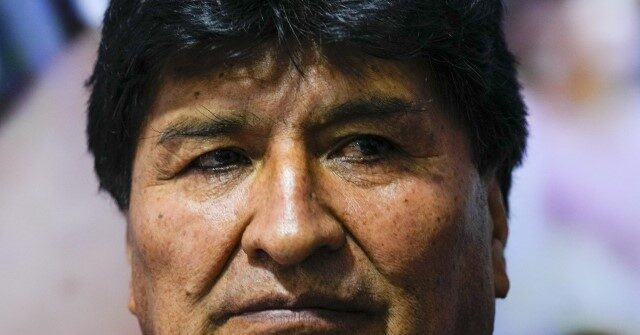On October 2, Bolivia’s Special Force for the Fight Against Crime (Felcc) reported the disappearance of Cindy Vargas, who alleged that she was trafficked and raped by former socialist President Evo Morales during her childhood. Morales, who governed Bolivia from 2006 to 2019, is currently being investigated for human trafficking and statutory rape connected to his time in office. The case gained attention after investigators uncovered a birth certificate from Tarija indicating that Morales fathered a child with Vargas when she was just 15 years old. The investigation, which began in 2019, had previously stalled until the recent discovery of the birth certificate reignited prosecutors’ interest in the case.
Vargas, now 23, and her eight-year-old daughter are missing, prompting a police search that began after local authorities confirmed their last sighting near a school in Yacuiba, a municipality close to the Argentine border. Felcc director José Luis Zenteno expressed concern about the potential for Vargas and her daughter to have crossed into Argentina given the geographical proximity. The case appeared more complicated due to the implications that both of Vargas’s parents allegedly received political favors in return for allowing the relationship between Vargas and Morales to occur, highlighting a troubling web of corruption and exploitation.
Bolivia’s Minister of Government, Eduardo Del Castillo, announced that police are treating the disappearances as linked to an attempted kidnapping, indicating the heightened risk to Vargas and her daughter. While details remain scarce due to ongoing legal restrictions, Del Castillo stressed the urgency of ensuring the safety of both women. As the investigation unfolds, there is a broader concern regarding Vargas’s well-being considering her history as a victim of a high-profile case of abuse involving Morales, who is maneuvering politically for a potential return to power after previously exceeding constitutional term limits.
Adding layers to this disturbing narrative, Vargas’s father has reportedly confirmed that Morales was responsible for impregnating his daughter while she was still a minor. Despite his claims of ignorance regarding the specifics of Vargas’s situation—due to his separation from her mother—he has since been detained as part of the judicial proceedings. This echoes the complexities of familial dynamics and societal pressure often accompanying cases of sexual abuse, particularly when public figures are involved. Morales, by evading a summons to testify last week, continues to present himself as a figure of controversy, wrapped in accusations and protective loyalties from his political base.
Morales’s ongoing political maneuvers are being closely monitored, especially as he threatens civil disruptions in the event of his arrest. His influence remains significant within the Movement Towards Socialism (MAS) party, sparking rivalries with current President Luis Arce. Morales’s supporters have already begun erecting blockades in strategic locations, threatening to disrupt national supply chains and severely impacting the Bolivian economy. The government has responded by dismantling some of these blockades, but the situation remains tenuous. Such tensions illustrate how deeply rooted political affiliations can affect public safety and governance in Bolivia.
In summary, the disappearance of Cindy Vargas amidst serious criminal allegations against Evo Morales sheds light on not only a potential human trafficking case but also the ongoing political chaos in Bolivia. As investigations progress, the ramifications of Morales’s past actions, coupled with his current political ambitions, will likely continue to shape the socio-political landscape of the country. The urgent need for justice in Vargas’s case and protection of her and her daughter remains a driving priority for Bolivian authorities amid potential strikes and civil unrest incited by Morales’s supporters. As the investigation unfolds, the questions surrounding accountability, victims’ rights, and the safeguarding of personal safety in a politically charged environment remain pressing concerns for Bolivians.

